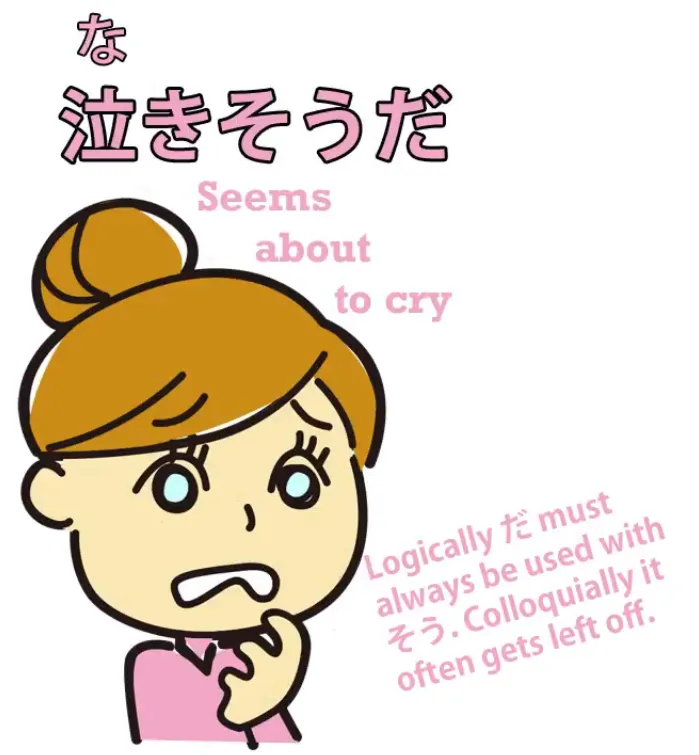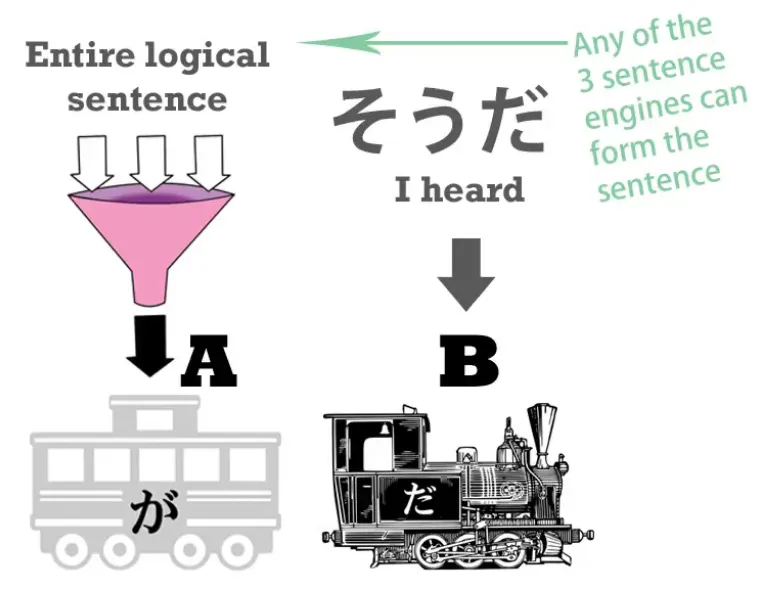The helper noun そう, which can mean either likeness or hearsay, either that something seems like something or that we are stating not our own view or opinion but something we've heard. So そう means like that, which makes it of course a very good candidate for describing something seeming like something.
(Những từ trên đều có nghĩa là "kiểu như"?)
そう với nghĩa là "trông kiểu như"
Xóa âm kana ở cuối rồi thêm そう vào là xong -> sẽ thành danh tính từ (adjectival noun):
だfrom the だ-engine - theだ(Về cơ bản là danh từ)なfrom the だ / な-engine. (Danh từ đuôi な)いfrom the い-engine.**- And from the verb engine, we take that last う-row kana. And we just put -そう onto them. VD:
- 元気そうな学生, we're saying a lively looking-is student/ a lively seeming-is student.
- それはそれで面白そうな話ですわね。
 (Chính vì lý do đó mà trong đoạn 面白そうな話 lại có な, chỉ đi được với danh tính từ??? thì phải)
(Chính vì lý do đó mà trong đoạn 面白そうな話 lại có な, chỉ đi được với danh tính từ??? thì phải)
そう = nghe nói là
This is not what happens when we're talking about hearsay. When we're talking about hearsay, we use そうだ or そうです after the entire, complete sentence.
さくらが日本人だ**そうだ**. What we're saying here is **I've heard that** Sakura is a Japanese person

らしい
らしい, which is a helper adjective. Cách ghép thì đơn giản là just put らしい after the word or after the completed logical clause.
Cũng như そう:
- if we put it after a single word we are talking about our impressions of that particular object.
- if we put it after a completed clause, we are saying it seems to be that way.
Điểm khác nhau giữa らしい & そうだ/です
Cần phải thêm だ trước そうだ, nghĩa là: we've heard that that sentence is the case.
 あの動物はウサギだそうだ (I've heard that that animal is a rabbit) -> Điều mà ta nghe từ người khác.
あの動物はウサギだらしい (It seems that animal is a rabbit) -> seems is more used to guess based on the information you have (Đoán dựa trên thông tin mà bản thân mình có)
あの動物はウサギだそうだ (I've heard that that animal is a rabbit) -> Điều mà ta nghe từ người khác.
あの動物はウサギだらしい (It seems that animal is a rabbit) -> seems is more used to guess based on the information you have (Đoán dựa trên thông tin mà bản thân mình có)
Một số điều khác về
For example, we can say that something has the qualities of something.
男**らしい**男is amanly man, a man who possesses the qualities of a man.- If we know that she's a teacher and we say,
さくら先生は先生**らしい**, we mean that she behaves like a teacher.
-> らしい we are getting into much more subjective areas. We're not simply guessing whether something is in fact delicious or interesting, which we can confirm by experience. We're talking about our impressions and beliefs and subjectivities surrounding the phenomenon
っぽい
らしい will tend to imply that the quality is what something ought to have. -っぽい often tends to imply the opposite. (basically, it tends to imply an undesirable quality)
Some notes
(Youは)X?上手になったそう. It's okay, but I wouldn't actually use たそうです to say this at all because it sounds like you're quite astonished by the information. Just みたいですね or んですね would work